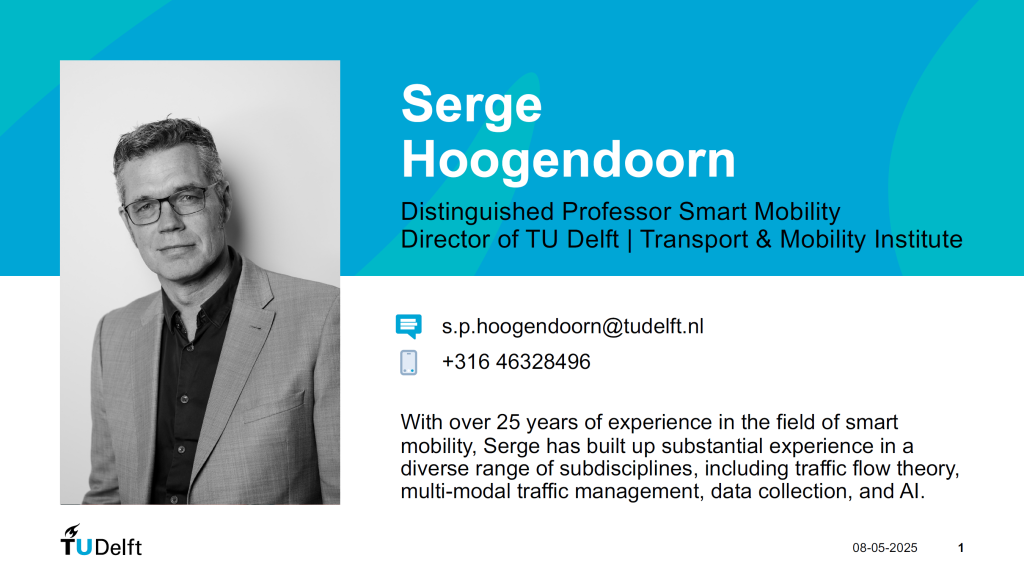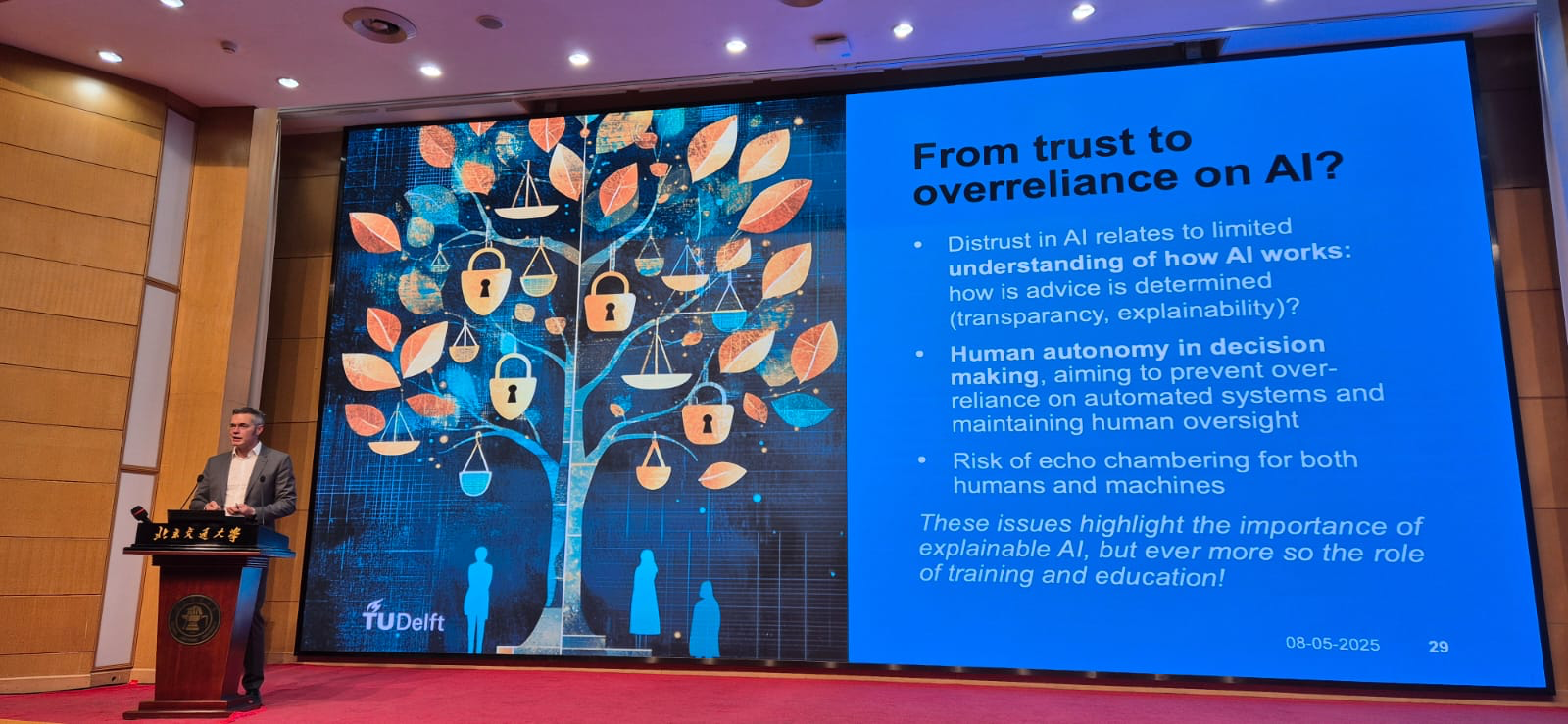On May 8, 2025, Prof. Dr. Serge Hoogendoorn, Distinguished Professor of Smart Mobility and director of the TU Delft Transport & Mobility Institute, gave a keynote address at Beijing Jiaotong University (BJTU). During this occasion, he introduced AI Compass to the international audience.
His lecture focused on the transformative role of artificial intelligence (AI) within traffic and transportation, including crowd management. AI is not only changing mobility systems themselves, but also how we study, design, and manage them. In doing so, AI places new demands on the skills of future mobility professionals.
AI for Inclusive and Efficient Transportation
Hoogendoorn discussed how AI can contribute to inclusive mobility by better supporting travelers with disabilities, for example. He also used the Ketheltunnel case study to show how AI can improve urban transportation systems through smarter demand forecasting and real-time traffic management.
Navigating Challenges: Ethics, Data, and System Complexity
At the same time, he pointed out the complex challenges posed by AI in these domains. These include the nonlinear and stochastic nature of traffic systems, ethical issues around autonomy and transparency, and the limitations of available mobility data.
The Takeaway: Data Science Must Be Grounded in Domain Knowledge
A central message from the keynote: for successful and responsible application of AI in traffic and transportation, the combination of data science and deep domain knowledge is essential.
The vision outlined is closely aligned with AI Compass’ goal: to bring together behavioural science, ethics, and AI research to better understand how human-AI teams can and should be designed to manage crowds.


